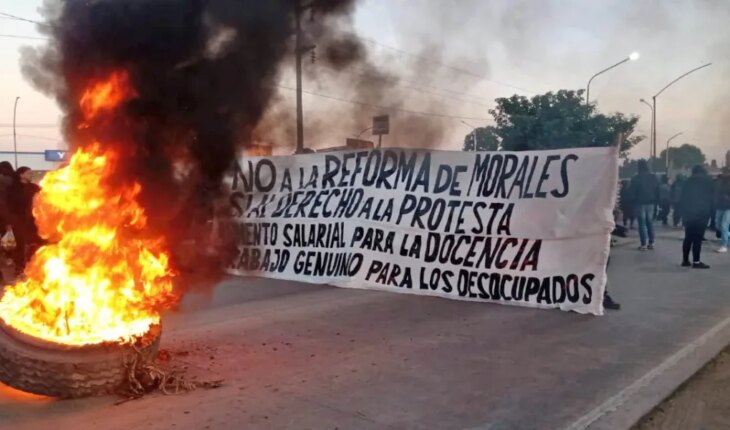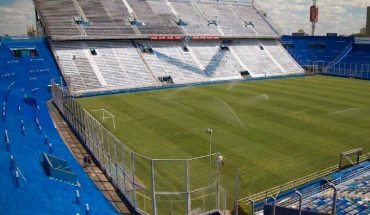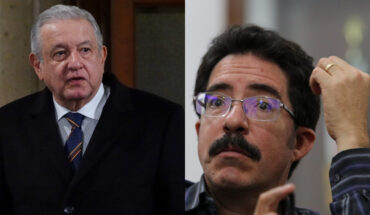Near the town of Purmamarca, at the intersection between routes 9 and 52, demonstrators were repressed on Saturday after blocking the passage in rejection of the Constitutional Reform promoted by Gerardo Morales -governor of Jujuy-.After the approval of the provincial Magna Carta by a Constituent Assembly last Friday, the reactions were not long in coming. The next day, different social organizations gathered at the intersection of the roads to complain in a day that became national news after the repression by the police. Four pockets of clashes between security forces and protesters existed on Saturday. By dawn, the police had already arrested two demonstrators, who were later released, and by nightfall the number increased considerably. The attempts of the authorities to avoid the blockades of the route, a situation that ended with several injured by rubber bullets, were futile however, since at night they resumed the pickets. The protests, led largely by members of indigenous peoples who called for Morales’ resignation, left at least 25 people detained, including teachers, political and social leaders and even journalists working in the area. The Office of the Children’s Ombudsman also received complaints of repression of minors during protests. “The Defe received complaints about repression in the presence of children and adolescents in the conflict and we are already articulating with all areas of childhood and adolescence so that there is not a single child or adolescent detained,” they communicated through their social networks. In this regard, both the Press Union of Buenos Aires (SIPREBA) and the Argentine Federation of Press Workers (FATPREN) expressed their rejection of the detention of journalists and demanded their immediate release. “Together with @PrensaFATPREN we repudiate the brutal repression that is taking place in Jujuy during the demonstrations against the constitutional reform. We demand the immediate release of journalists Luciano Aguilar and Camilo Galli, as well as all those detained,” they wrote on Twitter. The arrest of 25 people was not enough to stop the protest that continued this Sunday with members of communities of the Puna and the Quebrada de Humahuaca, who allowed the passage every hour. The controversial points of the ReformBehind closed doors, the government approved on Friday night with 40 conventional the reform that modifies article 36, “right to private property”, and grants benefits to the holders who confront land holders with the original communities and imposes “mechanisms and fast and expeditious ways that protect private property and restore any alteration in possession, use and enjoyment of the goods in favor of its owner”, in addition to considering “serious violation of the right to property the non-consensual occupation”. The point of greatest debate is the “Right to Social Peace and Peaceful Democratic Coexistence”, which adds “the express prohibition of total closures of streets and road blocks, as well as any other disturbance to the right to free movement of the inhabitants of the province and its legal consequences”. It is precisely this point that hastened the governor’s plans, since it served as support for the governor’s repression on Saturday. On the other hand, Morales also eliminated the midterm elections with the new constitution and established that “the party that obtains the majority of votes in the elections for Governor will have half plus one of the seats in the Legislature.”
Jujuy: protest, repression and 25 detainees
June 19, 2023 |





